|
Books Should Be Free Loyal Books Free Public Domain Audiobooks & eBook Downloads |
|
|
Books Should Be Free Loyal Books Free Public Domain Audiobooks & eBook Downloads |
|
History Books |
|---|
|
Book type:
Sort by:
View by:
|
By: Anonymous | |
|---|---|
 True Stories of Wonderful Deeds
True Stories of Wonderful Deeds
37 short pieces perfect for newer recorders. These one page Stories of (mostly) Wonderful Deeds were written for Little Folk to teach them about famous incidents in their history. Bonnie Prince Charlie, Nelson and Hardy, Bruce and the Spider, David Livingston, Canute, Sir Philip Sydney, and Elizabeth and Raleigh are just some of the well known people and incidents covered in short stories. | |
By: Pierre Loti (1850-1923) | |
|---|---|
 War
War
Pierre Loti [Julien Viaud] (1850-1923) was a French naval officer and novelist. The present book is one of his few works of non-fiction, a small collection of letters and diary entries that describe his views and experiences in the wars and military operations in which he participated. Besides World War I, he also sheds light upon his views and involvement in the preparations for the Turkish Revolution of 1923, for which until today a famous hill and popular café in Istanbul are named after him. | |
By: Benjamin Harris (1781-1858) | |
|---|---|
 The Recollections of Rifleman Harris
The Recollections of Rifleman Harris
The recollections of a British infantryman who served in the British army during the Napoleonic Wars. | |
By: H. G. Wells (1866-1946) | |
|---|---|
 Anticipations
Anticipations
Wells considered this book one of his most important, a natural follow-up to such works as his Man of the Year Million and The Time Machine. His goal was to get people to think and act in new ways. The book starts with a look at how humans get along socially and how they carry out their business ventures. It then discusses how these elements influence others, such as politics, the world of work, and education. H. G. tried to make clear how the current social order was disintegrating without preparing another to take its place. He then traced the roots of democracy, which in its present state he saw as unworkable. Instead, he proposed a new republic. He also critiqued modern warfare. | |
By: Charles Morris (1833-1922) | |
|---|---|
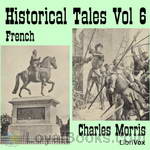 Historical Tales, Vol VI: French
Historical Tales, Vol VI: French
Volume VI of a series containing anecdotes and stories, some well-known, others less so, of particular countries. This fifth volume covers the history of France from the Hun invasion of Europe in the 5th century up to the Prussian War, describing history for children and young adults in an exciting and novel manner. (Introduction by Kalynda) | |
By: Ida M. Tarbell (1857-1944) | |
|---|---|
 The History of Standard Oil: Volume 2
The History of Standard Oil: Volume 2
The History of the Standard Oil Company is a book written by journalist Ida Tarbell in 1904. It was an exposé of the Standard Oil Company, run at that time by oil tycoon John D. Rockefeller, the richest figure in America's history. Originally serialized in 19 parts in McClure's magazine, the book was a seminal example of muckraking, and inspired many other journalists to write about trusts, large businesses that (in the absence of strong antitrust law in the 19th century) attempted to gain monopolies in various industries. The History of the Standard Oil Company was credited with hastening the breakup of Standard Oil, which came about in 1911. | |
By: Various | |
|---|---|
 National Geographic Magazine Vol. 01 No. 1.
National Geographic Magazine Vol. 01 No. 1.
National Geographic Magazine Volume 1 Number 1 published in 1889. Topics of articles are:Announcement by the National Geographic SocietyIntroductory Address by the PresidentGeographic Methods in Geologic InvestigationClassification of Geographic Forms by GenesisThe Great Storm of March 11 to 14, 1888The Great Storm off the Atlantic Coast of the United States, March 11th to 14th, 1888The Survey of the CoastThe Survey and Map of Massachusetts | |
By: Neil Munro (1863-1930) | |
|---|---|
 Doom Castle
Doom Castle
Doom Castle is the story of young Count Victor's journey to Scotland after the Jacobite Rebellion, searching for a traitor to the Jacobite cause as well as a mysterious man under the name of "Drimdarroch", whom he swore revenge. After a perilious journey, Count Victor arrives at Doom Castle as a guest of the enigmatic Baron of Doom, his two strange servitors and his beautiful daughter... (Summary by Carolin) | |
By: Geoffrey H. Malins (1887-1943) | |
|---|---|
 How I Filmed the War
How I Filmed the War
An account of World War I and the experience of filming it by an early cinematographer (and, after the war, successful director) who was there. | |
By: Lord Thomas Cochrane (1775-1860) | |
|---|---|
 Autobiography of a Seaman, Vol. 1
Autobiography of a Seaman, Vol. 1
This two volume work is the autobiography of Lord Cochrane, a naval captain of the Napoleonic period. His adventures are seminal to the development of naval fiction as a genre. Marryat sailed with Cochrane, while later writers borrowed incidents from this biography for their fictions. Most notable among these is Patrick O'Brian, three of whose novels have clear parallels to incidents in the life of Cochrane. This first volume covers Cochrane's earlier life, during which he is most active militarily. (Introduction by Timothy Ferguson) | |
By: W. Max Reid (1839-1911) | |
|---|---|
 The Mohawk Valley
The Mohawk Valley
An in-depth view and early history of the Mohawk Valley in upper New York state, covering the time period of 1609-1780. This historical piece covers that part of the Mohawk Valley between Schenectady and Rome, NY.The narrator hopes that the listener understands that a best effort has been made in pronunciation of many names within this work; particularly those of the Mohawks, Iriquois, Huron, and Mohicans; as well as the French and Dutch. | |
By: Gaston Maspero (1846-1916) | |
|---|---|
 Manual of Egyptian Archaeology and Guide to the Study of Antiquities in Egypt
Manual of Egyptian Archaeology and Guide to the Study of Antiquities in Egypt
A handbook of Egyptian archaeology, issued by the British Museum, considered suitable for British tourists travelling to Egypt in the 19th Century. (Introduction by Timothy Ferguson) | |
By: William Wells Brown (1814-1884) | |
|---|---|
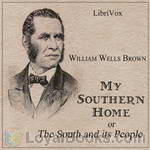 My Southern Home or, The South and Its People
My Southern Home or, The South and Its People
William Wells Brown was born a slave, near Lexington, Kentucky. His mother, Elizabeth, was a slave; his father was a white man who never acknowledged his paternity. Brown escaped slavery at about the age of 20. For many years he worked as a steam boatman and as a conductor for the Underground Railroad in Buffalo, New York. In 1843, he became a lecturer for the Western New York Anti-Slavery Society, and was a contemporary of Frederick Douglass.Brown went to Europe in 1849 to encourage British support for the anti-slavery movement in the United States... | |
By: Various | |
|---|---|
 The Night Side of New York
The Night Side of New York
This nonfiction collection of sketches, by "members of the New York press," takes the reader on a tour of 1866 New York City after dark, with stops along the way to vividly depict scenes ranging from the splendid to the squalid - but focusing largely on the latter! | |
By: Elizabeth Cady Stanton (1815-1902) | |
|---|---|
 Eighty Years and More; Reminiscences 1815-1897
Eighty Years and More; Reminiscences 1815-1897
Elizabeth Cady Stanton was one of the premier movers in the original women’s rights movement, along with Susan B. Anthony, her best friend for over 50 years. While Elizabeth initially stayed home with her husband and many babies and wrote the speeches, Susan went on the road to bring the message of the women’s rights movement to an often hostile public. When black men were given the vote in 1870, Susan and Elizabeth led the women’s rights establishment of the time to withhold support for a bill that would extend to black men the rights still denied for women of all colors... | |
By: William Cooper Howells | |
|---|---|
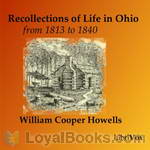 Recollections of Life in Ohio, from 1813 to 1840
Recollections of Life in Ohio, from 1813 to 1840
Recollections of Life in Ohio is the autobiography of William Cooper Howells (1807-1894), father of the American novelist William Dean Howells. The Howells were Welsh woolen mill owners. William Cooper's father brought the family to America in 1808--at a time when Great Britain actually forbid skilled workmen from emigrating, thus putting the father's practical knowledge of mill machinery in great demand. Small scale industries--paper and woolen mills, flour mills, and distilleries were sprouting apace with farms in the newly opened lands of Ohio, where the Howells settled in 1813... | |
By: Thomas Cooper (1805-1892) | |
|---|---|
 The Bridge of History Over the Gulf of Time: A Popular View of the Historical Evidence for the Truth of Christianity
The Bridge of History Over the Gulf of Time: A Popular View of the Historical Evidence for the Truth of Christianity
Written by the former skeptic, poet, and scholar, Thomas Cooper, The Bridge of History Over the Gulf of Time admirably sets forth a winsome defense of Christianity. Written as the substance of fourteen years of lectures, at the request of his hearers, Cooper leads his reader across the bridge of history, through the centuries, tracing Christianity. At last, he addresses "Leben Jesu" by Dr. David Friedrich Strauss, discusses the historicity of the four Gospels, and offers some concluding evidences for the truth of Christianity. (Introduction by tzieger) | |
By: Peter Kropotkin | |
|---|---|
 Memoirs of a Revolutionist, Vol. 2
Memoirs of a Revolutionist, Vol. 2
Peter Kropotkin was a Russian anarcho-communist and scientist. This is his autobiography, and he writes not only about his own life, but also about 19th century Russian society and politics. He was born into the nobility and had a military education, but he gradually abandoned the values of his social class and became an anti-authoritarian socialist, opposed to both the rule of the Tsars and to the seizing of power by the authoritarian Bolsheviks. He was also interested in literature, biology, economics and geographical exploration. This second and last volume of his memoirs covers his time in St Petersburg, his time in prison, and his journeys in Western Europe. ( | |
By: Plato (424-348 BC) | |
|---|---|
 Laws
Laws
Νόμοι (Laws) is Plato's final dialogue written after his attempt to advise the tyrant Dionysius II of Syracuse. The dialogue takes place between: an Athenian Stranger (Socrates? A god in human form?); the quiet Lacedaemonian Megillus; and the Cretan Cleinias. The Stranger asks whether humans live to be more effective at waging war or if there is something more important a legislator should seek to achieve. During their pilgrimage Cleinias discloses his role in the establishment of a new colony... | |
By: Henry Morgenthau (1856-1946) | |
|---|---|
 Ambassador Morgenthau's Story
Ambassador Morgenthau's Story
Ambassador Morgenthau’s memoirs of his years in the service of the United States in Constantinople, (today Istanbul), are an important primary historical resource for the study of the dissolution of the Ottoman Empire and the Armenian Genocide. During this genocide, approximately 1,500,000 Armenians living in Anatolia were murdered in an attempt to rid Turkey of its non-Turkish populations. Mr. Morgenthau left Turkey a frustrated man, having done all that he was able through diplomatic circles to halt the murders, to no avail... | |
By: Theodore Roosevelt (1858-1919) | |
|---|---|
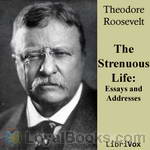 Strenuous Life: Essays and Addresses of Theodore Roosevelt, The
Strenuous Life: Essays and Addresses of Theodore Roosevelt, The
This book is a collection of Theodore Roosevelt’s published commentaries and public addresses on the general theme of the requirements for individual and collective success in the personal, civic, political, and social arenas. (Introduction by Bob Neufeld) | |
By: Jacob A. Riis (1849-1914) | |
|---|---|
 Neighbors – Life Stories of the Other Half
Neighbors – Life Stories of the Other Half
These stories have come to me from many sources—some from my own experience, others from settlement workers, still others from the records of organized charity, that are never dry, as some think, but alive with vital human interest and with the faithful striving to help the brother so that it counts. They have this in common, that they are true. For good reasons, names and places are changed, but they all happened as told here. I could not have invented them had I tried; I should not have tried if I could... | |
By: Mark Twain | |
|---|---|
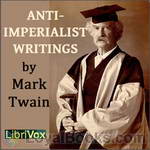 Anti-imperialist writings
Anti-imperialist writings
This audiobook is a collection of Mark Twain's anti-imperialist writings (newspaper articles, interviews, speeches, letters, essays and pamphlets). | |
By: Annonymous | |
|---|---|
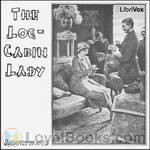 The Log-Cabin Lady
The Log-Cabin Lady
'The story of The Log-Cabin Lady is one of the annals of America. It is a moving record of the conquest of self-consciousness and fear through mastery of manners and customs. It has been written by one who has not sacrificed the strength and honesty of her pioneer girlhood, but who added to these qualities that graciousness and charm which have given her distinction on two continents.'(from the introduction) | |
By: Charles Waddell Chesnutt (1858-1932) | |
|---|---|
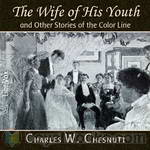 The Wife of His Youth and Other Stories of the Color Line
The Wife of His Youth and Other Stories of the Color Line
Published in 1899, The Wife of His Youth and Other Stories of the Color Line is a collection of narratives that addresses the impact of Jim Crow laws on African Americans and white Americans of the South. Many of Chesnutt's characters are of mixed-race ancestry which sets them apart for a specific yet degrading kind of treatment from blacks and whites. These stories examine particularly how life in the South was informed through a legacy of slavery and Reconstruction—how members of the “old dominion” desperately struggled to breath life into the corpse of an antebellum caste system that no longer defined the path and direction in which this country was headed... | |
By: Mary Huestis Pengilly | |
|---|---|
 Diary Written in the Provincial Lunatic Asylum
Diary Written in the Provincial Lunatic Asylum
Mary Pengilly was taken to a Lunatic Asylum by her sons where she kept a diary, which this book is taken from. Mary records the harsh conditions and treatments received at the hands of the nurses during her stay. Once Mary is released she takes it upon herself to make the authorities aware of the situation at the Provincial Lunatic Asylum. | |
By: W. O. E. Oesterley (1866-1950) | |
|---|---|
 Immortality and the Unseen World
Immortality and the Unseen World
The full title of this book is Immortality and the Unseen World - A Study in Old Testament Religion. Oesterley describes the beliefs that pre-Christian Hebrews and Semites held regarding the afterlife and the immortal nature of humans. The nature, form and evolution of these beliefs are derived from the Tanakh (Old Testament), comparisons with the beliefs and mythologies of neighboring cultures, and archeological finds. To develop a full study, additional beliefs of these people are also considered, including the beliefs of the constituent parts of humans; demonology, angelology, shades and the Satan; the home of the dead, ancestor worship, necromancy, and burial customs... | |
By: John Relly Beard (1800-1876) | |
|---|---|
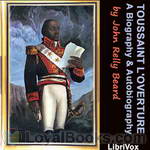 Toussaint L’Ouverture: A Biography and Autobiography
Toussaint L’Ouverture: A Biography and Autobiography
François-Dominique Toussaint L’Ouverture (1743-1803) rose to fame in 1791 during the Haitian struggle for independence. In this revolt, he led thousands of slaves on the island of Hispañola to fight against the colonial European powers of France, Spain and England. The former slaves ultimately established the independent state of Haiti and expelled the Europeans. L’Ouverture eventually became the governor and Commander-In-Chief of Haiti before recognizing and submitting to French rule in 1801... | |
By: Henry Rider Haggard (1856-1925) | |
|---|---|
 Pearl Maiden
Pearl Maiden
This is the story of Miriam, an orphan Christian woman living in Rome in the first century. She falls in love with a Roman officer, but knows that her Jewish childhood playmate loves her too and will do anything in order to get her love in return. | |
By: James Parton (1822-1891) | |
|---|---|
 Captains of Industry
Captains of Industry
In this volume are presented examples of men who shed lustre upon ordinary pursuits, either by the superior manner in which they exercised them or by the noble use they made of the leisure which success in them usually gives. Such men are the nobility of republics.Most of these chapters were published originally in "The Ledger" of New York, and a few of them in "The Youths' Companion" of Boston, the largest two circulations in the country. I have occasionally had reason to think that they were of some service to young readers, and I may add that they represent more labor and research than would be naturally supposed from their brevity... | |
By: Washington Irving (1783-1859) | |
|---|---|
 The Alhambra: A Series of Tales and Sketches of the Moors and Spaniards
The Alhambra: A Series of Tales and Sketches of the Moors and Spaniards
This is a collection of essays, verbal sketches, and stories by Washington Irving. Irving lived at the Alhambra Palace while writing some of the material for his book. In 1828, Washington Irving traveled from Madrid, where he had been staying, to Granada, Spain. At first sight, he described it as "a most picturesque and beautiful city, situated in one of the loveliest landscapes that I have ever seen." He immediately asked the then-governor of the historic Alhambra Palace as well as the archbishop of Granada for access to the palace, which was granted because of Irving's celebrity status... | |
By: Agnes Strickland, Elisabeth Strickland (1796-1874) | |
|---|---|
 The Lives of the Queens of England Volume 3
The Lives of the Queens of England Volume 3
The Lives of the Queens of England is a multi-volumed work attributed to Agnes Strickland, though it was mostly researched and written by her sister Elizabeth. These volumes give biographies of the queens of England from the Norman Conquest in 1066. Although by today's standards, it is not seen as a very scholarly work, the Stricklands used many sources that had not been used before.Volume three includes the biographies of Isabella of Valois, Joanna of Navarre, Katherine of Valois, Margaret of Anjou, Elizabeth Woodville and Anne of Warwick. (Introduction by Ann Boulais) | |